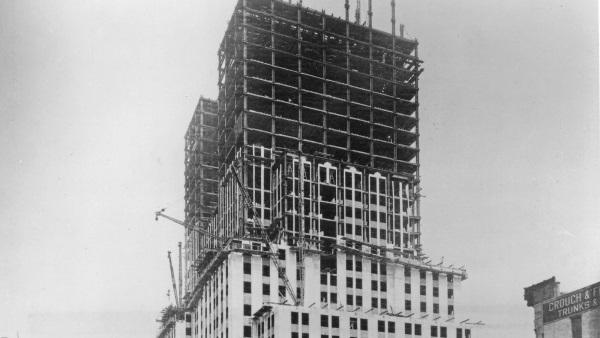General contracting is one of the most diversified services in the field of construction. This service involves the integrated management and organizational work related to the construction of a new or major repair of an old construction site. The general contractor fully controls the facility as a customer and, in turn, bears full responsibility to it.
General contractor selection
Before starting construction work, the organization of the developer chooses the general contractor - a legal organization that takes responsibility for the timely delivery of the finished construction project. To select such an organization, the developer organizes a general contract tender. This competition allows you to choose from all the applications received the best organization that has in its portfolio successfully built and commissioned facilities in the same category as the future new building.

Do not think that every developer works only with a select circle of construction organizations. General contractors are selected on the basis of future real estate projects, their category and level of complexity. An enterprise that previously built only large industrial facilities is not suitable for the construction of a new high-rise residential building or shopping complex. If the portfolio of the applicant organization had successful projects in this category, a construction contract will be concluded with her.
General contract
The main document that governs the relationship between the developer and the selected construction company is a general contract. This document describes all the nuances of interaction between the customer of construction works and their direct executor. The final version of the contract is signed by all parties. Under current rules, a construction contract must be published, and information about the developer and general contractor must be present on a billboard located directly on the construction site.
General Contractor Tasks
For the organized management of the entire volume of construction work, the general contractor must act within the framework of the approved rules and the agreed working documentation. In general, the functions of an organization acting as a general contractor are as follows:
- operating time of interaction between own branches and divisions;
- coordination of the activities of subcontractors entrusted with the work specified in the subcontracts;
- temporary employment of narrow-profile specialists whose experience and skills are necessary to complete the construction;
- cooperation with the press and the media, which tacitly advertise the general contractor and the construction site;
- interaction with monitoring and verification services.
Responsibility and main functions of the general contractor
The organization that won the general construction contract is responsible at all levels for the quality and timeliness of the work performed. The general contractor also assumes all risks that may arise in the course of construction work.
Accepting responsibility for the progress of construction work, the general contractor oversees all issues related to the construction of the building, engineering, design, including such services as:
- preliminary geodetic examination;
- analysis of design and design documentation with subsequent optimization;
- holding a tender for the selection of the best subcontractor;
- involvement of narrow-profile specialists in the work;
- providing the construction site with the necessary materials and equipment;
- organization of interaction between subcontractors;
- constant control over each stage of work;
- conflict resolution;
- interaction with inspection and control structures.
The relationship of the contractor and subcontractor
The organization that won the general contract is entitled to hire third-party construction companies and individuals to perform certain types of work. In relation to them, the general contractor acts as the customer and has the right:
- hire a subcontractor on a competitive basis or otherwise;
- transfer to the subcontractor certain parts of the project documentation;
- provide contractors with materials, equipment necessary for the implementation of construction work;
- coordinate the activities of all subcontractors;
- monitor the performance of the agreed work;
- accept the work completed by the subcontractor;
- make settlements.
A successfully developed concept allows you to implement the most non-standard building solutions on time and with the passage of the full cycle of necessary work. The general contractor, selected at an open and fair tender, will be able to perform the necessary amount of work in the allotted time and will present to the customer a fully completed turnkey construction project.